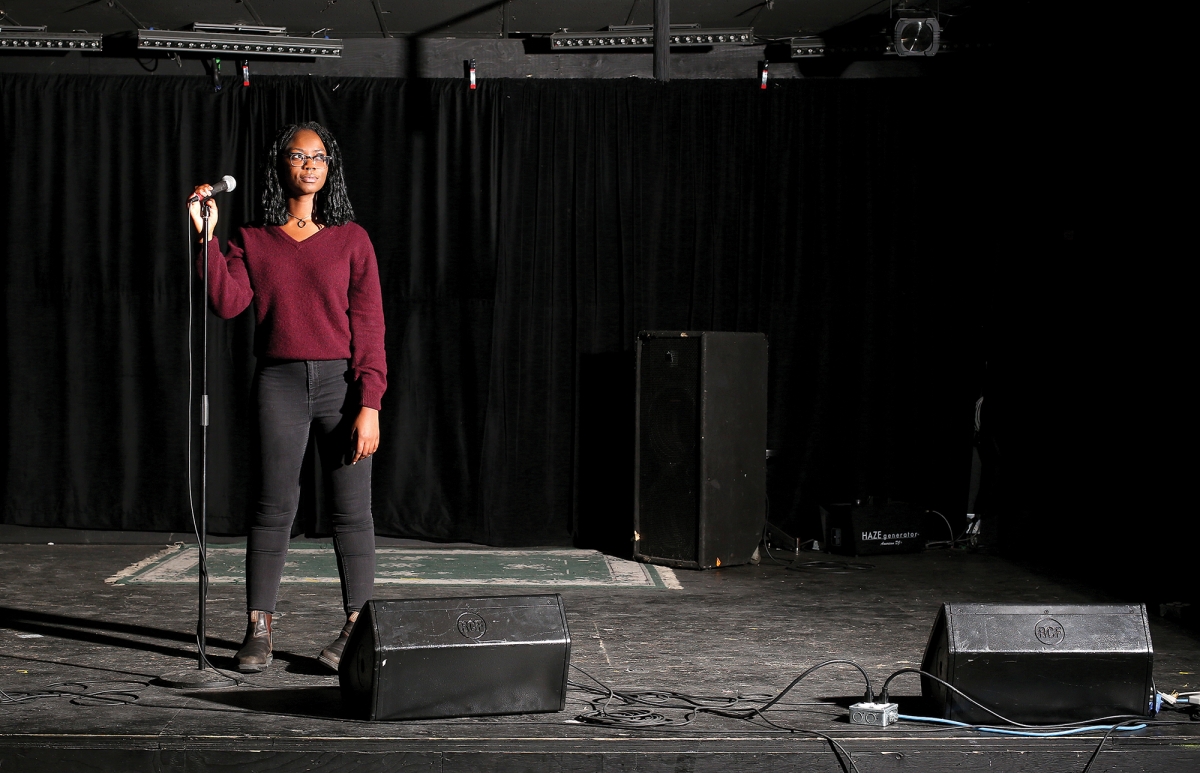
Poet-at-law
Chimwemwe Undi has always been one who watches.
An orange being peeled. A dancer’s uninhibited limbs. How we treat those different than us.
As a child, observation helped her make sense of the ever-changing places she inhabited. Born in Winnipeg, Undi [BA(Adv)/16] was a toddler when her family moved to Zambia, then Namibia, for her father Michael’s [PhD/95] research as an animal scientist. She returned to Canada at 13.
“I’ve actually never lived where people automatically assumed that I was part of the in group, that that was where I belonged. It’s shaped who I am and what I had to become comfortable doing: being out of my element,” says the emerging poet and spoken-word artist who received a Schwartz/Reisman Scholarship last year.
Embracing the uncomfortable has made this UM student a vocal truth teller, unafraid of calling out injustices. When the CBC commissioned her last year to describe the personal toll of racism, she was emphatic: Maybe it’s me, the only Black girl in too many rooms, asked to be an avatar, a metaphor, a megaphone, to speak when spoken to and then never for myself, to open my mouth and unfurl the whole brown world, like a late summer fiddlehead.
Her acute perspective has already garnered her national publications and international performances. But in two years, she hopes to own a different stage: the courtroom. Undi is three years into a law degree (her third after a BA and MA in linguistics) at UM, where her way with words has proved an advantage.
“Poetry to me is very much understanding how small things are connected to big things, and I think that perspective is really important in the law. How a single instance of harassment can actually be connected to a bigger system.”
Earning a scholarship gave her the freedom to keep creating, and enlightening, through prose. She gave the keynote address at the 2018 Mayor’s Luncheon for the Arts, and is a poet-in-residence with Poetry in Voice, which seeks to foster a love of poetry among Canadian high school students.
“The power of art is it opens paths into peoples’ hearts and minds,” says Undi. “Maybe it shows a perspective they haven’t considered before. It’s a little easier, or different, than reading it in the news.”






